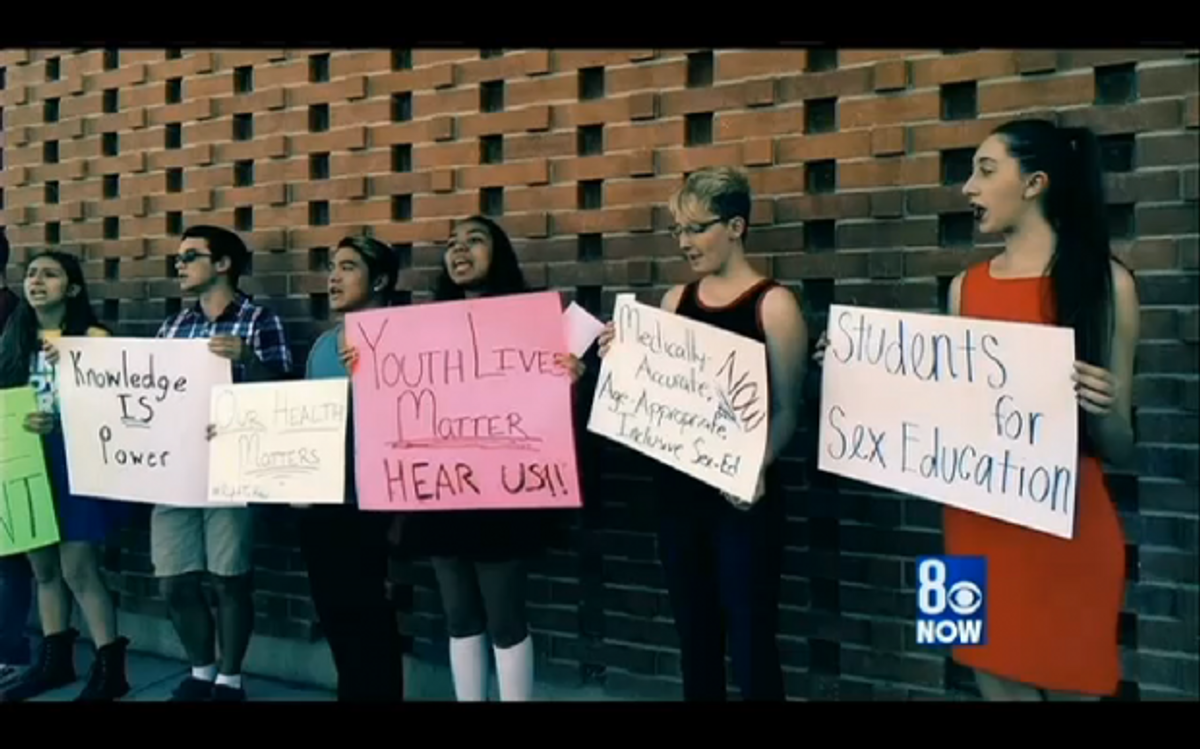A school district in Nevada is currently holding open hearings to debate what kind of sex ed will be taught in its schools. And a group of students have been turning out to advocate for evidence-based, comprehensive sex ed because that's exactly what they want taught in their classrooms.
The hearings are in response to an uproar from parents over a comprehensive sex ed curriculum that included age-appropriate information about sexual health, relationships, domestic violence, birth control, masturbation and gender identity. The resource was developed by the Sexuality Information and Education Council of the United States, an organization that has been working with schools for 50 years.
Here are some of the incredibly controversial things this curriculum offers (just kidding these things are not controversial at all):
Sexuality education seeks to provide an opportunity for young people to question, explore, and assess their own and their community’s attitudes about society, gender, and sexuality. This can help young people understand their family’s values, develop their own values, improve critical-thinking skills, increase self-esteem and self-efficacy, and develop insights concerning relationships with family members, individuals of all genders, sexual partners, and society at large. Sexuality education can help young people understand their obligations and responsibilities to their families and society.
And then there's this extreme nonsense (just kidding this is not extreme nonsense):
Sexuality education seeks to help young people develop interpersonal skills, including communication, decision-making, assertiveness, and peer refusal skills, as well as the ability to create reciprocal and satisfying relationships. Sexuality education programs should prepare students to understand sexuality effectively and creatively in adult roles. This includes helping young people develop the capacity for caring, supportive, non-coercive, and mutually pleasurable intimate and sexual relationships.
Students have been attending the hearings, letting their parents, teachers and administrators know that they want this kind of education for themselves and their peers.
“I think we need to talk about identity formation; we need to talk healthy relationships and how to prevent rape and sexual assault, along with contraception,” Caitlyn Caruso, a junior in the Clark County School District, told KLAS-TV. "I'm invested in this because I don't want anyone to have to go through what I did. I entered sex ed as a rape survivor and I was overwhelmed with this message that if you have sex before marriage, you're disgusting. I didn't have a choice."
Like Caruso, millions of other students in this country are being deprived of a real education on the issues that matter to them and will affect them for the rest of their lives. Only 22 states and the District of Columbia currently require that public schools teach sex education in the first place, and among that number, only 19 have laws ensuring that what’s being taught meets the minimum requirement of being medically or factually accurate.



Shares